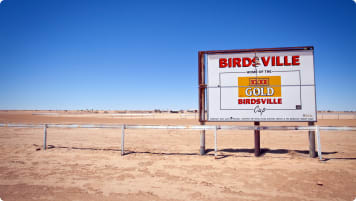Towns of the Avon Valley: York, Northam and Toodyay
Article about the colonial settlement of the Avon Valley, Western Australia for mature and senior travellers interested in history when joining a small group tour as a couple or solo traveller.
19 Jun 21 · 8 mins read

The Avon Valley
By Marco Stojanovik
The Avon Valley region, less than two hours’ drive east of Perth City, Western Australia, offers rolling green hills, gentle streams, picturesque scenery and and historic towns brimming with heritage. With endless options abound, the region makes an ideal destination to potter through craft shops and museums, enjoy a meal and drink at a historic pub or restaurant, picnic on the banks of the Avon River, hot air balloon at dawn, or set out on heritage trails and bush walks. With festivals and events held all year long, it’s never a dull time visit.
This article explores the colonial history of the Avon Valley, as well as the attractions of its three highlight towns – York, Northam and Tooday. It is intended as background reading for a number of Odyssey Traveller tours in Western Australia. These tours are designed for senior and mature travellers who would like to learn about the history and culture of destinations with like-minded people in a small group setting (participant number is typically 6 to 12), using the knowledge and expertise of our tour leader and local guides.

Original Indigenous Inhabitants of the Avon Valley
The Avon Valley is part of the traditional lands of the Ballardong Noongar people, which extended from the Woongan Hills and beyond in the north to beyond Pingelly in the south. The Ballardong are a specific language group of the Noongar people who have occupied the South West region of Western Australia for up to 120,000 years, living in harmony with the land.
Aboriginal society held strong spiritual beliefs, with mythical creatures and Dreamtime stories often linked to geographical features of their landscape. The Avon River, for example, was a key site for the Ballardong not only for the supply of food but also as a location along the route taken by the river serpent, the Wagyl.

British Settlement
Parts of the Avon Valley were amongst the earliest settled areas in Western Australia. This came about due to the need for suitable land beyond Fremantle and Perth. Ever Increasingly more space was required for the growing of crops to meet the continuous and heavy influx of settlers to the Swan River Colony, established in 1829.
In the winter of 1830, Ensign Robert Dale, a young officer still only in his twenty-first year, acting on the instructions of Lieutenant-Governor James Stirling, set out to cross the Darling Range. By this stage, all that had been examined was near the sea, with no attempt yet made to explore the district over the mountains. After a three-week arduous journey through dense forests and over flooded streams, Dale and his party encountered a verdant plain which sloped down to a small rivulet, its soil fertile and easy to cultivate.
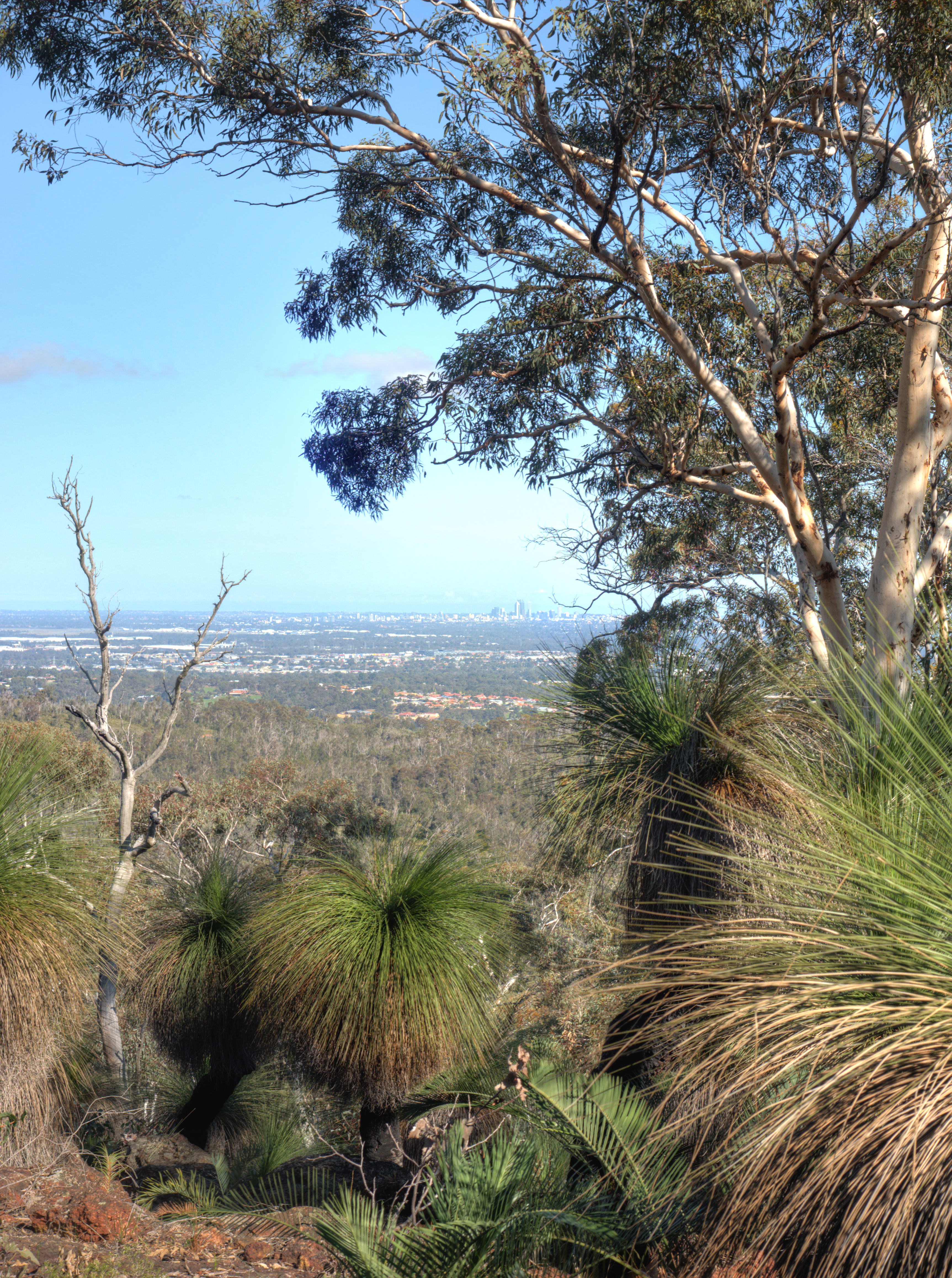
Delighted with the promising report, Lieutenant-Governor Sterling announced by Government Notice on 11 November 1830 that a large area should be thrown open for selection in Avon Valley. This was quickly taken up by colonists, many of whom had had farming experience in England.
Among them was J. S. Clarkson who, observed a resemblance between the valleys and his own country of Yorkshire. It was thus decided by Lieutenant-Governor Stirling that the district be named Yorkshire and that York should be the name of the first town.
York was gazetted in 1831, and further exploration led to the reservation of two other townsites, Beverley and Northam. Dale was then again responsible for the expedition which led to the discovery of the rich valleys of Toodyay and Culham. Settlers in the district immediately set about the construction of huts, and the preparation required for their livestock and the cultivation of new land.
Difficult Beginnings
By 1936 York, the main town of the district, still only consisted of two horses, a barn, an army barracks and some out-houses, with about 50 acres of cleared lands. The town grew slowly at first due to several tremendous difficulties.
Both droughts and floods were common, and in the absence of fences, shepherds had to be constantly in attendance. Even with the utmost diligence, though, sheep were lost in the limitless bush, poisoned by unknown plants, or destroyed by native dogs. Problems also arose associated with using English farming techniques in an unfamiliar climate, and kangaroos constantly competed with the sheep for grass. And unsurprisingly, the Ballardong Noongar people and European settlers also clashed repeatedly in these early days of settlement.
Nevertheless, many of the problems were soon overcome and the district began generally to flourish. The townships soon took shape as mud houses were replaced by substantial private and Government buildings constructed from brick and stone, of which there was an ample supply.
Convict Labour
An important development in 1840 was the establishment of the York Agricultural Society for the sale and show of stock and wool. The more enterprising of York settlers had decided that farming interests would benefit from its formation, and solutions could be found to the problem of labour shortages during harvesting time and difficulties faced in taking stock over the hills to Perth from the Avon district.
The society was influential enough to induce Governor Fitzgerald’s application to the Home Government in 1848 for convicts to be sent out to the Colony. The application successful, the first convicts arriving in 1851, and depots were established at York and Toodyay.
Their labour was used for public works which had been urgently needed for a number of years. Immediately they were put to improving the roads, many of which were in a shocking state. During the 1950s the convicts cut a more direct route from the district to Perth, reducing the journey by twelve hours. And they constructed many of the district’s early public buildings.
The Region Prospers
The region prospered during the second half of the 19th century due to its importance for sheep and grain farming, sandalwood, cattle, goats, pigs, and horse breeding.
Rich gold discoveries at Southern Cross in 1889 and at Kalgoorlie later in 1893 then brought an era of even greater prosperity to York. Since it was one of the last rail stops before the walk to the goldfields and road transport usually passed through the town, various businesses flocked to the town. Stores popped up to supply the goldfields and blacksmiths and harness makers were required by the thousands of hopeful miners who passed through.
Construction of the railway to the eastern Goldfields in 1894, however, caused Northam to expand tremendously at the expense of York, becoming the major departure point for prospectors heading east. As a result, it soon became the principle agricultural centre of the district.
Highlights: York
Straddling the Avon River, backed by the Dyott Ranges and surrounded by rolling agricultural hills, present-day York is a pleasant place with an atmosphere of peace and tranquillity. Wildflowers and birdlife compliment the open gardens and there’s a wide range of experiences on offer including food and wine festivals, country racing, local produce and plenty of arts and crafts. Declared a “Historic Town” by the National Trust of Australia, York is also home to more heritage buildings in than any other town of its size in Western Australia.
Its main thoroughfare, Avon terrace, contains most of the heritage public buildings, remaining exactly as it was in 1911. Meander along to encounter various examples of 19th century Victorian and Edwardian architecture, including Sergeant’s Pharmacy, Castle Hotel, Settlers House, the Old Post Office, The Policy Station, the Old Gaol and Courthouse and the York Town Hall. Behind the main street lie a wealth of old dwelling-houses and cottages, and on the opposite side of the Avon River the fine, hand-made Anglican Church built in 1854 still stands.
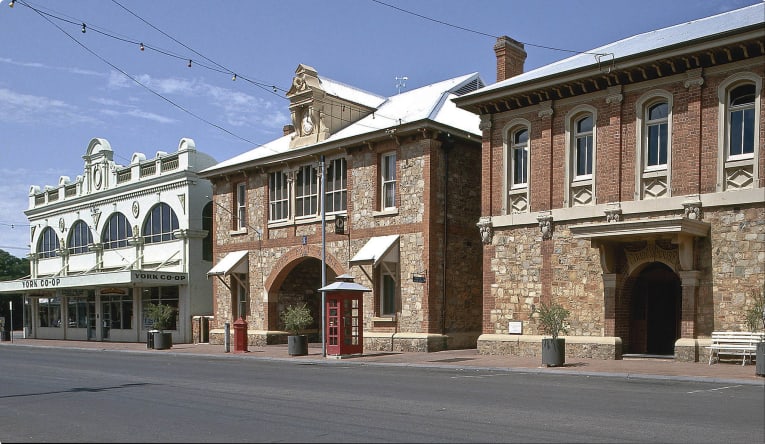
Other places well worth a visit include the York Motor Museum, the Residency Museum, the Suspension Bridge, Faversham House, the several available heritage walking trails, and the giant straw sculptures of endangered animals.
Highlights: Northam
Northam is the largest inland rural town in Western Australia which is not dependent on mining, and is known for its vineyards, cafes, restaurants, boutique and craft shops, and the popularity of hot air ballooning.
The town is home to over 185 heritage listed buildings, a number of which still serve the community, including Northam Flour Mill, Byfield House, Mitchell House, St John’s Church, Northam Post Office, Northam Police Station and Court House, and the Town Hall. Many of the buildings can be viewed along the heritage walking trails listed in the very detailed Northam/Katrine Heritage Trails booklet (available at the Visitor Information Centre).
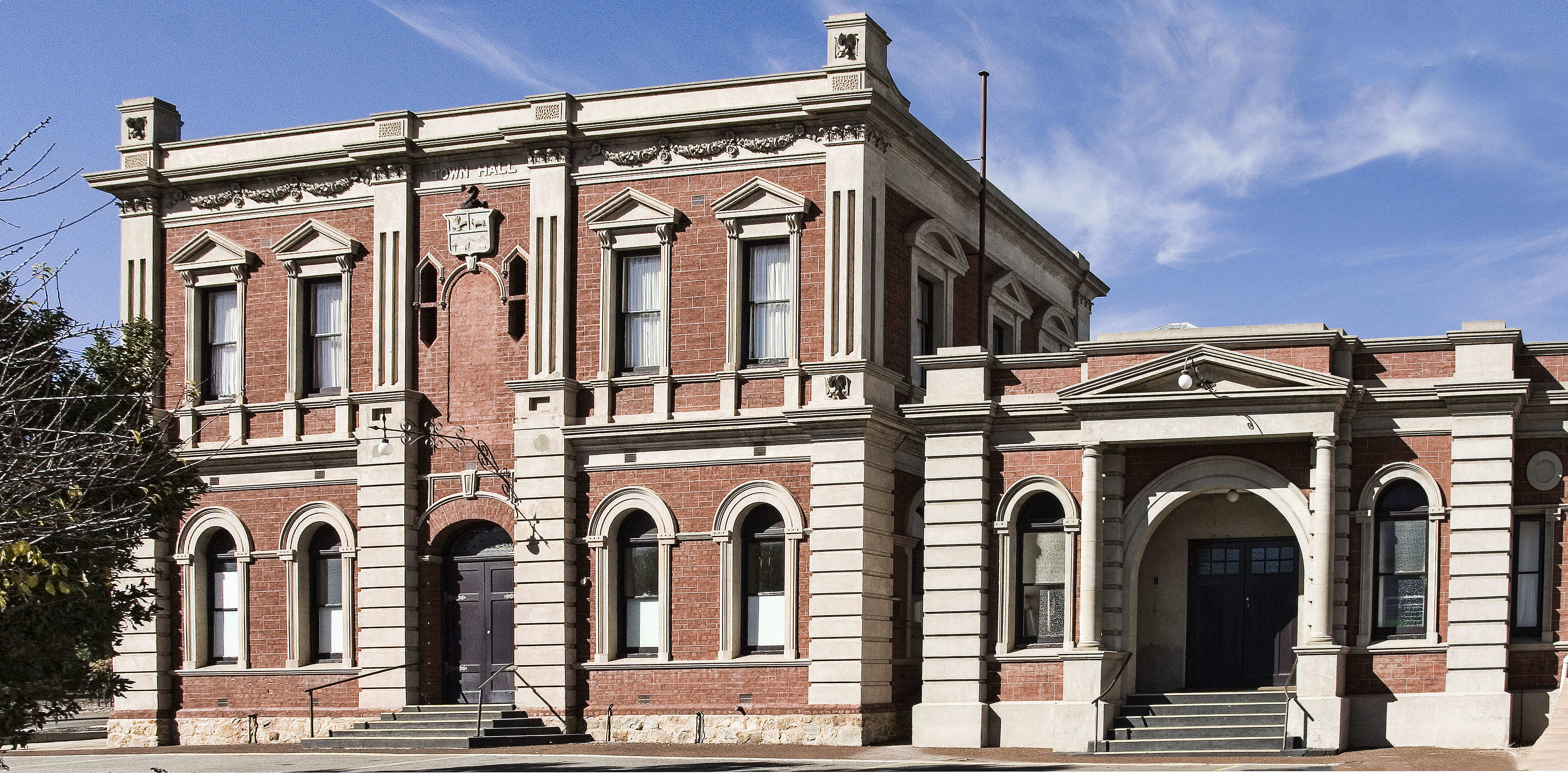
The Avon River also flows through the town, its banks edged by attractive parks and waterways. It is a popular pastime to picnic beside the river and watch the elegant white swans which, introduced to Northam by settlers over 150 years, are unique in Western Australia to the town.
Highlight: Toodyay
Toodyay is nestled in a valley between scenic, undulating hills, on the banks of the Avon River. The town boasts some of the finest examples of nineteenth century architecture in the state, with over one hundred places of historical significance listed by the Heritage Council of Western Australia. These include cottages, homesteads, shops, churches, parks, and railway infrastructure.
Connor’s Mill, an 1870s steam driven flour mill, is a fine surviving remnant of the region’s colourful colonial history. Explore inside to witness historical machinery demonstrating the antiquated flour milling process. You can also visit the intriguing Old Gaol built in the 1860s, which now houses a museum dedicated to the varied history of the region. Other attractive heritage buildings include the Toodyay Post Office, the old Toodyay Fire Station, the Freemasons Hotel, Urwin’s Store and Butterly’s Cottage, among others.

In town there are large numbers of veranda-clad pubs, alfresco cafes, gift shops and places to eat, as well as fine examples of locally worked art, pottery, woodwork, and photography. Spend the night at one of the many charming and luxurious bed and breakfasts in and around the town, or underneath the stars at a caravan park or camping ground.
Tour of Western Australia Wildflowers
Odyssey Traveller is giving you the opportunity to join us on a wildflower tour of Western Australia this spring. Our wildflower trail focuses on the south west region of Western Australia. We begin by heading north to the wheatbelt town of Moora, from where we visit Lesueur National Park, home to several species of Western Australia‘s unique wildflowers. The national park is home to acacias, hibbertias, leschenaultias, melaleucas, gastrolobiums, and several species of orchids. The wheatbelt is home to significant amounts of leschenaultia macrantha, a species unique to Western Australia. Nearby, our tour joins the ‘wildflower way’, joining at Mullewa, and stopping off at 15 spots on the way to Wubin. After this, our wildflower tour heads west into the outback, stopping at the Avon Valley centre of Merriden, and the ‘wild west’ town of Kalgoorlie, before heading to the wildflower hotspot of the south west.
Odyssey Traveller has been serving global travellers since 1983 with educational tours of the history, culture, and architecture of our destinations designed for mature and senior travellers. We specialise in offering small group tours partnering with a local tour guide at each destination to provide a relaxed and comfortable pace and atmosphere that sets us apart from larger tour groups. Tours consist of small groups of between 6 and 12 people and are cost inclusive of all entrances, tipping and majority of meals. For more information, click here, and head to this page to make a booking.
Articles about Australia published by Odyssey Traveller:
For all the articles Odyssey Traveller has published for mature aged and senior travellers, click through on this link.
External articles to assist you on your visit to Western Australia:
Related Tours
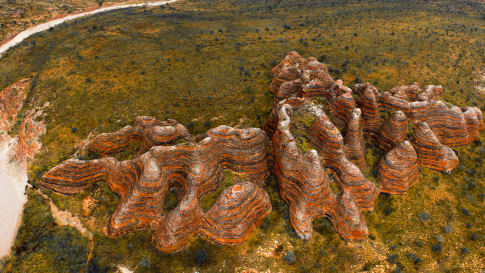
days
Mar, Jun, AugLong tour of Australia for a small group (days 14-38 draft) (Outback Tour of the Northern Territory and Western Australia) (Ready for consistency check & updates)
Visiting Northern Territory, Western Australia
Small group tour touring most of the Australian territory, travelling through the outback and visiting many of the famous sights as well as off the beaten track locations, giving you the opportunity the explore and meet our people in the most remote locations. Learn about the history of the people who explored the deserts, from indigenous communities to Europeans, as well as Burke and Wills, visit White Cliffs, Birdsville, Marree and far north Kakadu and the Kimberley.
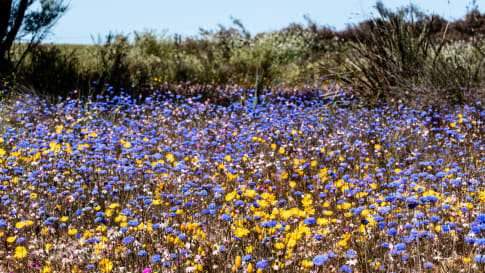
15 days
Aug, SepWildflowers tour of Western Australia
Visiting Western Australia
Escorted small group tour for senior and mature travellers as a couple of solo traveller. Upto 12 people of WA's Wildflower regions including Esperance and the Fitzgerald river National park. Local guides and program leader share knowledge about this fascinating region whilst in bloom.
From A$12,250 AUD
View Tour
13 days
May, Jun, Jul, Aug, SepSmall group tour of Australia's Kimberley
Visiting Western Australia
Escorted small group tour of the Kimberley. We explore and visit The Bungles, Bell Gorge, Mitchell plateau & Halls Creek in the dry season. Amazing landscapes intertwined with Aboriginal communities resident more than 45,000 years.
From A$15,390 AUD
View Tour
19 days
Sep, Apr, May, Jun, Jul +2Kimberley, Purnululu, Tiwi Islands and Arnhem Land
Visiting Northern Territory, Western Australia
Small group tour touring most of the Australian territory, travelling through the outback and visiting many of the famous sights as well as off the beaten track locations, giving you the opportunity the explore and meet our people in the most remote locations and far north Kakadu and the Kimberley.
From A$14,995 AUD
View TourArticles
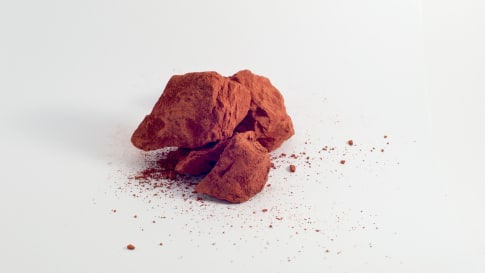
Aboriginal Ochre Trade
Article for small group travellers to learn about ochre in the historic Aboriginal community of outback Australia. Mature and senior travellers explore the deep history and trading routes of Aboriginal History.

Aboriginal Rock Art in the Kimberley, Australia
The Kimberley is explored on a small group tour for mature and senior travelers, couples or singles. Both Aboriginal community is studied and an appreciation of the wet and dry seasons. This guide on the Kimberley assists the traveler as you start from Broome and travel round via Halls creek and Purnunulu national park over some 17 days in a group of up to 12 people.
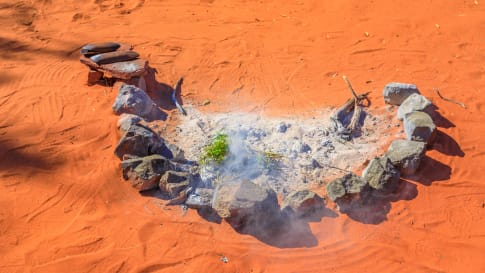
Australian Aboriginal Paths of Migration
Article for small group tours of mature or senior couples or solo travellers interested in learning more about Aboriginal history, Kinship, trading routes, songlines and ancient history.

Esperance and Wildflowers, Western Australia
The historic town of Esperance amongst wildflower enthusiasts is a must see. Each spring the town and the surrounding South West eco-region is filled with bursting colour overtaken by blooming wildflowers.

George Grey's Kimberley Expedition
Article on Western Australia about the Colonial explorer George Grey. Supports small group tours for mature couples and solo travellers of the Kimberley and places of interest such as Wyndham and its pastoral history. The Kimberley is where the first Australian arrived.
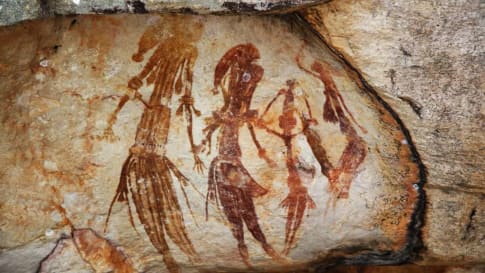
Gwion Gwion Rock Paintings (Bradshaw Art)
Bradshaw's discovery of rock art in the Kimberley remained a challenge for many decades .This article for small group tours of senior couples and solo travellers into the Kimberley provides information about the rock art and the re-discovery.

Halls Creek, Western Australia
Halls Creek an important stop on our Small group tour of the Kimberley. We learn about the gold rush on this tour for mature and senior travellers, couples and singles.
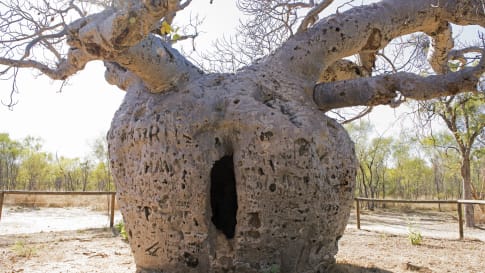
Kimberley Boab Tree
Boab trees are a wonder. Article for mature and senior travellers about this distinctive tree in Western Australia. Join a small group tour for couples and solo travellers exploring the Kimberley.

Kings Park, Perth
Perth hosts the biggest inner-city park in the world, the 400 hectare Kings Park, with 6 million visitors a year. As part of the Wildflower small group tour we visit and learn about the endemic plant collection in the park.

Kununurra, Western Australia
Explore the sights and history of Kununurra, with its spectacular lakeside beauty and outback charm, Kununurra is one of the Kimberley's most popular highlights. Odyssey offers small group tours for mature and senior travellers, couples, and solo travelers to Australia and Western Australia.
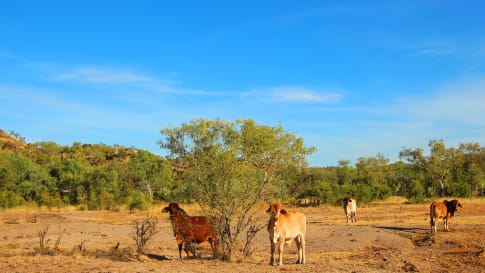
Pastoral Pioneers of the Kimberley, Western Australia
Learn about Pastoral Pioneers on a Western Australia small group tour for seniors into the outback for senior and mature couples and solo travellers.

The Australian Outback: A Definitive Guide
Explore learn and consider what is the outback in this article. For mature and senior travelers considering joining a small group package tours into the outback to see, learn and explore about this unique place, not only the landscape but the Aboriginal approach to living. On each of the tours for couples and the single traveler you learn something different but fascinating, from Outback Queensland, the Flinders, Broken Hill and the Kimberley and the wildflowers all contribute to this question, what is the outback?
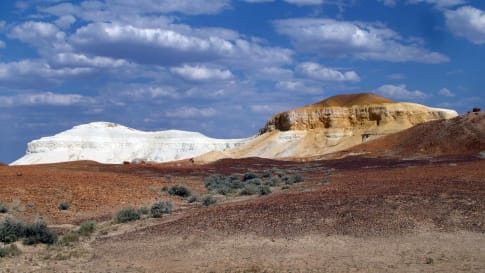
The Kimberley: A Definitive Guide
This article supports the small group package tours for mature and senior travellers, couples and solo travellers to Western Australia's Kimberley region. Learn about the wet and dry seasons and the fascinating Aboriginal history as well as the Bungle Bungles, Lake Argyle, Halls creek and resort of Broome.

Wildflower Way, Western Australia
Wildflower Way itself runs 309 kilometres from Dalwallinu, north of Perth, going north and west to the coast of Geraldton, covering 21 meaningful sites developed to educate travellers. This small group tour for mature travellers of Wildflowers visits wildflower way.
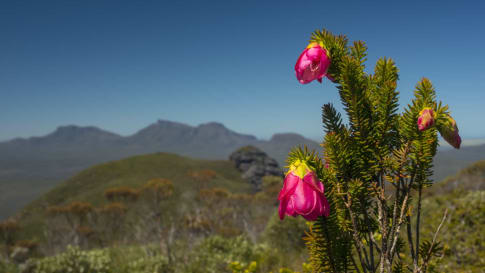
Wildflowers of Mt Barker and Stirling Range, Australia
The town of Mount Barker and the nearby Stirling Range National Park are one of the best places in Western Australia to see the state's incredible collection of wildflowers, that we visit on this small group tour of Western Australia Wildflowers.

Wyndham, Western Australia
Article on the historic Kimberley town of Wyndham. Learn about how this was the entry to this part of the Kimberley to Halls creek, and for the pastoralists in the Victorian era. Supports small group tours for mature and senior travellers couples and solo travellers.

Unique wildflowers of Western Australia
Western Australia becomes home to one of the world's most incredible collections of wildflowers. The state is home to more than 12, 000 species of wildflower - 60% of which are only found in Western Australia. Join Odyssey's small group wildflower tour.
